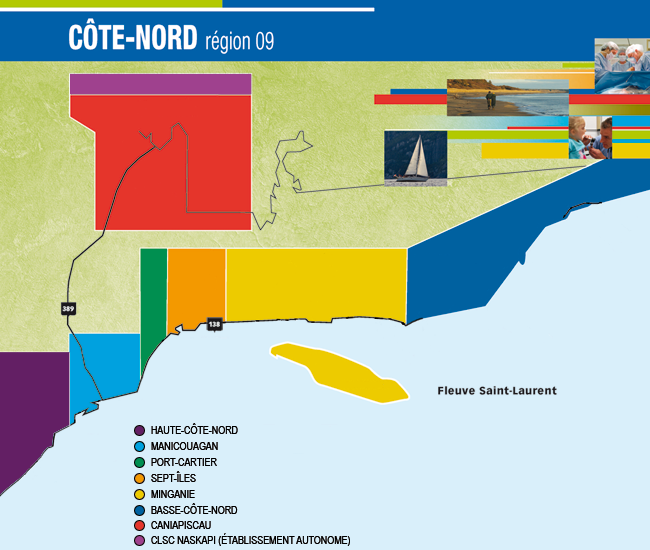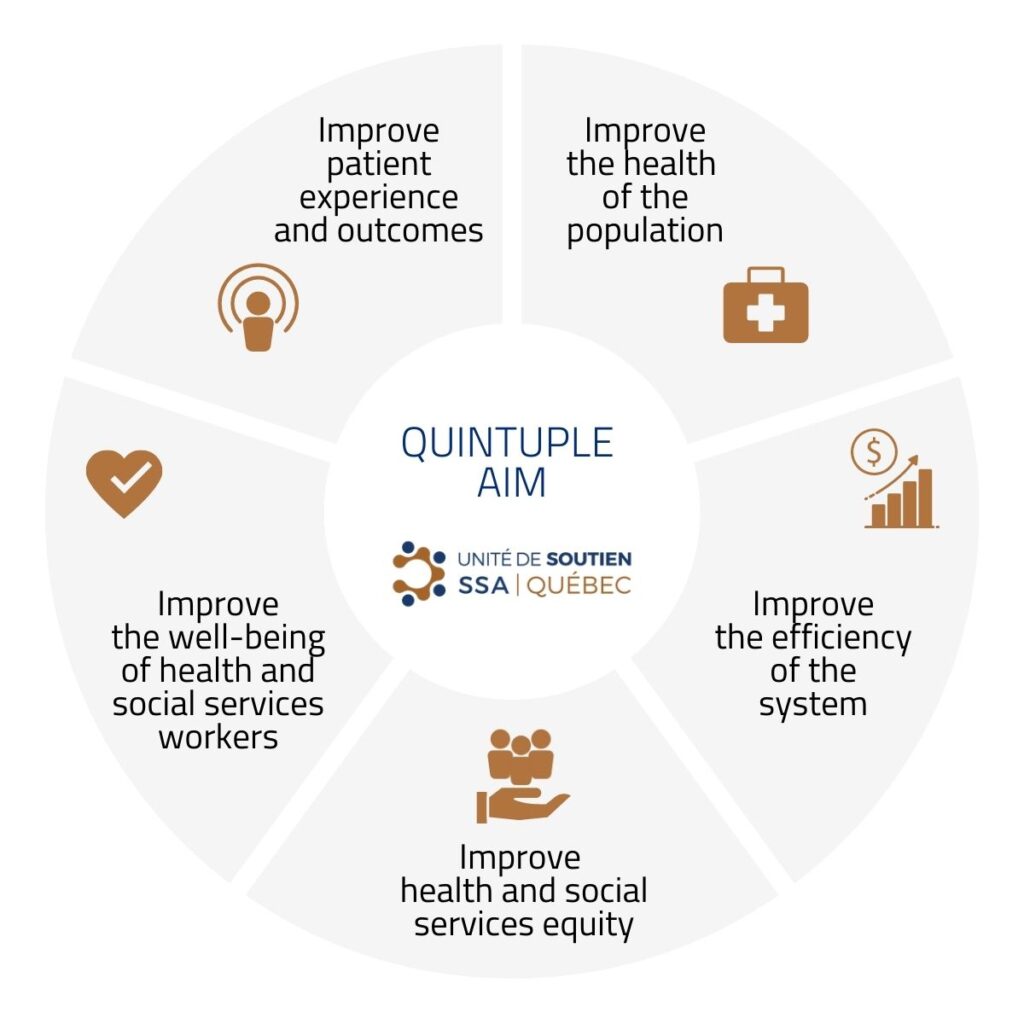As part of the PATIenTS program, the RUISSS Université Laval SSA team launched its project Sur le chemin du mieux-être selon la trajectoire de vie: Soutien à la personnalisation des soins et services dans la transition entre le domicile et l’hébergement pour les personnes aînées de la Côte-Nord. In the ministerial health plan 2022, the quality of care and services offered to seniors, in partnership with these people and their loved ones, is one of the main priorities, while linking home support policies with the long-term care accommodation policy.


During RUISSS Université Laval’s most recent strategic planning tour, support for seniors was also identified as a priority, particularly in remote areas.
The Centre intégré de santé et de services sociaux (CISSS) de la Côte-Nord has made a commitment to implement the accommodation policy of the Ministère de la Santé et des Services sociaux du Québec.
The Par-Aînés project team, led by Maude Laberge, will ensure that the project has an impact on the quintuple aim while meeting the needs and aspirations of the community.
The project team’s diverse scientific expertise includes the organization and optimization of care and services for the elderly, service management, sociology related to aging, digital health, ethics, health economics, patient engagement, evaluation of care trajectories, qualitative and quantitative approaches, work environment and caregiver burnout, participatory research, Indigenous health and secure care, nursing practice, interprofessional collaboration and shared decision-making. The Direction du Soutien à l’Autonomie et aux Personnes Agées (SAPA) as well as several other stakeholders within the Centre intégré de santé et de services sociaux (CISSS) de la Côte-Nord were actively involved.
Trajectory of seniors in the transition from home to residential care
The trajectory begins when the senior declares a loss of autonomy and the project is part of the continuum that leads to the residential setting in the regional context of the Centres intégrés de santé et de services sociaux (CISSS) de la Côte-Nord.

In the current trajectory, the senior’s “life story” is realized upon arrival in the new living environment, not upon departure from home or even before.
Based on the data that will be collected, the SSA-RUISSS Université Laval project team and stakeholders will identify improvements to be made in the trajectory that involves the transition to residential care in order to provide an optimized approach to the use of the “life story”. This will improve the experience of seniors during their stay in a residential setting.
Current “high level” trajectory

In this PATIenTS project, an improved trajectory is proposed: one in which the “life history” of seniors is taken into account before their arrival in a residential setting to ensure a personalized welcome that will remain continuous in the new living environment. The approach will promote the well-being of seniors and, as a result, the patient experience. It will allow professional health staff and staff working with seniors to provide more humane care. This is consistent with the fact that if time is taken to get to know the person before they arrive and staff have optimized tools to collect and use the “life story” (a ministerial request), the reception will be personalized, which will lessen the shock of the transition to the residential setting and enhance quality of life afterwards.
Issue
As indicated in the Health Plan released by the MSSS in 2022, the aging of the population is occurring more rapidly in Québec and in rural areas, which translates into a growing demand for accommodation.
This observation raises questions about the optimal way to welcome people aged 65 and over who are in a situation of loss of autonomy and to offer them a living environment that promotes their well-being.
Objective
In order to solve this problem, the team’s objective is to personalize the approach offered to seniors who are transiting to a long-term care facility by promoting the integration of their life history.
Methodology
The team adopts a design deploying a mixed-methods participatory research approach in support of continuous quality improvement (CQI) to address the quintuple aim.
- Conduct a rapid review (scientific and grey literature) to identify the best practices in the area of residential care for seniors with a loss of autonomy;
- Identify literature related to the reception of residents in residential settings, the processes and approach surrounding it;
- Identify key players involved in the housing process with whom to conduct interviews and develop an interview guide in partnership with the community. A working group with seniors and their loved ones as well as community partners could also be set up;
- To suggest improvements to be made according to a participatory organizational research approach and to support the people concerned within the Centre intégré de santé et de services sociaux (CISSS) de la Côte-Nord in the choice and implementation of an improvement to be made according to the partnership approach between the user, the family members and the actors of the health and social services system using the steps of the continuous quality improvement cycles.
Impact measurement

As part of the RUISSS Université Laval PATIenTS project, the team identified elements that could be measured to assess the project’s impact on each of the elements of the quintuple aim. A list of 289 indicators from the Institut national d’excellence en santé et en services sociaux (INESSS) was identified. Relevant indicators will be selected according to the needs of the community, always in a co-construction approach.
| Quintuple aim | Indicators (examples) |
|---|---|
| Patient experience and results | Seniors’ experience in their new living environment |
| Population health | Emergency Room Visits for Seniors in residential care |
| Health system efficiency | Emergency Room Visits for Seniors in residential care |
| Equity in health and social services | Difference in measured outcomes (experience and ER visits) by patient characteristics (e.g., Indigenous status, socioeconomic status) |
| Well-being of human resources in health and social services | Perception of facility employees and managers |
PATIenTS program
The Unité de soutien SSA Québec is launching the Life Trajectory Improvement and Innovation Partnerships in Transition to Sustainable Health (PATIenTS program) in collaboration with the four integrated university health and social services networks (RUISSSs). Through the PATIenTS program, the activation of the Québec learning health system is being carried out in the RUISSS territories of Québec through four tangible projects over a one-year period.
